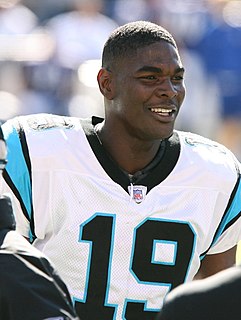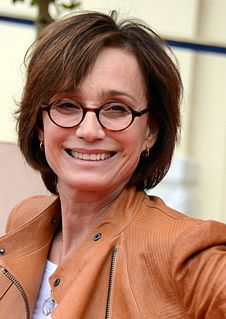A Quote by Keyshawn Johnson
When I'm on television, I'm talking to millions of people, so the conversation is totally different. My words are different. My diction is different because now I'm really talking American English and not homeboy English.
Related Quotes
To be blunt, I feel like lyricism in Spanish is of a different quality than English. You can get really poetic in Spanish, but I feel like if you do that in English, you risk sounding cheesy. In Spanish, it's never that. It's always this deep, passionate, beautiful imagery; it's painted different, a different color.
Someone might say about a person, "Oh, they are a 'Westerner." But who are Westerners? Greek, Bulgarian, German, English, Scandinavian, Spanish, American, Latin. All different nations, all different people. Different individuals live in the West. There's no such thing as "West" just as there's no such things as "East." What is "East?" Turkey, Iran, China, India, Japan. They are all different. They are all unique.
There are certain concepts, which exist in English, and are unthinkable, untranslatable into Hebrew and vice versa. Hebrew has a system of tenses, which is, in a big way, different from the English system of tenses, probably different than any European system of tenses, which means a different sense of reality, which means a different concept of time. So, things can be translated, but they become different.
Well, English is no problem for me because I am actually English. My whole family are English; I was brought up listening to various forms of the English accent. Obviously there are more specific ones that get a little bit tricky. Same with American stuff. But because in Australia we're so inundated with American culture, television, this that and the other, everyone in Australia can do an American accent. It's just second nature.
The English tourist in American literature wants above all things something different from what he has at home. For this reason the one American writer whom the English whole-heartedly admire is Walt Whitman. There, you will hear them say, is the real American undisguised. In the whole of English literature there is no figure which resembles his - among all our poetry none in the least comparable to Leaves of Grass
Some stories I write in Swedish, some in English. Short stories I've almost exclusively written in English lately, mostly because there's such a small market for them in Sweden and it doesn't really pay either. So, the translation goes both ways. What also factors in is that I have a different voice in English, which means that a straight translation wouldn't be the same as if I'd written it in English originally.
I've always noticed talking about lyrics is like talking about a duality. It's like a Gemini time every time I talk about one line. Because each line, of course, means different things to different people, millions of interpretations. With me, I always see two sides. I just see things split into two.






































